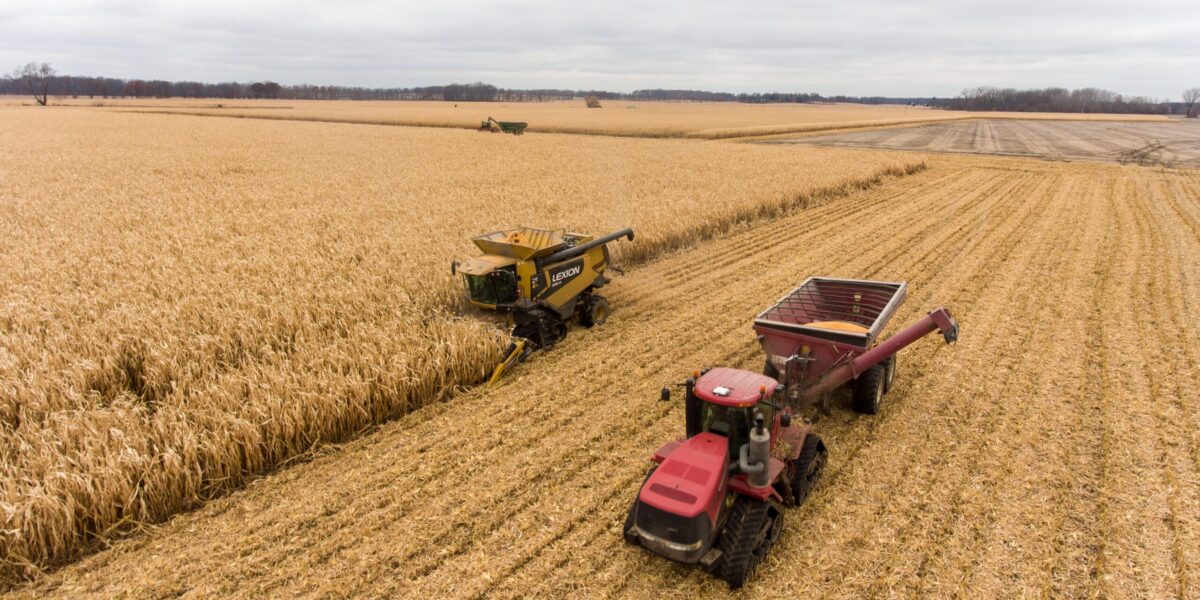Our food systems have huge impacts on human and planetary health.
Growing, producing, processing, transporting and eating food all contribute significantly to climate-altering emissions. Global food systems are major water users and polluters. Agriculture takes up massive amounts of land, which is a major factor in habitat loss and destruction.
This is especially true in affluent areas, where people consume more of everything, particularly meat.
A new Oxford University study confirms what vegans have been saying for years: eating an entirely plant-based diet significantly reduces emissions, pollution and land conversion.
The comprehensive study, published in Nature Food, analyzed data from 55,504 people with varying self-identified diets, ranging from vegan to meat-eater.
The study compared this with a review of “food-level data” looking at greenhouse gas emissions, water and land use, eutrophication (an overabundance of nutrients, algae and plants in water systems) and potential biodiversity loss. This data reportedly covers more than 38,000 farms in 119 countries.
How your meals impact the planet
Researchers found that vegan diets caused one-quarter of the impact of high-meat diets (more than 100 grams a day) in terms of greenhouse gas emissions, land use and eutrophication. Vegan diets’ impact on biodiversity loss was 35 per cent of the impact of high-meat diets, and 46 per cent of high-meat diets’ water use.
Food systems create about one-third of global emissions. This includes potent methane from livestock farming — methane emissions were 93 per cent lower for vegan diets than high-meat diets! Food systems are also responsible for 70 per cent of freshwater use and 78 per cent of freshwater pollution.
But the good news for non-vegans is that reduced-meat diets (less than 50 grams a day) and vegetarian diets are also substantially better for the environment and climate than high-meat diets.
The study showed that low-meat diets had half the impact of high-meat diets on emissions, water pollution and land use. In the U.K., that would be equivalent to taking eight million cars off the road. “However, the differences between low-meat, pescetarian and vegetarian diets were relatively small,” the Guardian reported.
Still, a vegan diet is still the best for the environment by far. It causes half the emissions of a low-meat diet. But cutting back on meat and animal products is a step in the right direction.
The impact of agricultural practices
We must also reduce food system impacts in other ways — such as cutting food waste, increasing sustainable and regenerative agriculture, and supporting local food production.
It is critical that we reform agricultural practices to protect soils and their ability to sequester carbon. Here, we can learn much from people who have lived in place for millennia and discovered how to feed themselves without depleting the systems that support agriculture, from small- to large-scale.
There are some ways to reduce the impact of animal agriculture — by adding seaweed to pigs’ and sheep’s feed to reduce methane emissions, for example. But that’s kind of like the oil industry using carbon capture and storage to reduce production emissions — it’s more about finding ways to continue destructive practices, rather than taking the action necessary to curtail them.
A shift in the way people eat and drink, especially in wealthier nations, will have the greatest overall effect.
Personal health benefits
Reducing or eliminating meat from your diet is also much healthier — and delicious! A well-balanced vegetarian or vegan diet includes more fruit, vegetables, nuts and legumes, and so is lower in cholesterol and higher in fibre. Studies show plant-based diets reduce the risk of heart disease, diabetes, dementia, high blood pressure, obesity, some cancers and more.
With any diet, it’s crucial that people get the nutrients they need. That means nutritional requirements must often be met in different ways for different people in different places — a vegan diet isn’t practical for everyone, especially people in the North who have relied on and had access to fish and game for millennia.
It also means those who choose a vegan diet must ensure they’re getting a good balance of proteins, minerals and vitamins — especially vitamins B12 and D, iron, zinc and calcium — which can mean using fortified foods and supplements along with bioavailable plant sources.
We wrote recently about the need for privileged people and countries to curtail what many would consider “luxuries” if we are to get serious about the climate crisis. Excessive meat consumption is one luxury the world can no longer afford.
David Suzuki is a scientist, broadcaster, author and co-founder of the David Suzuki Foundation. Written with David Suzuki Foundation Senior Writer and Editor Ian Hanington.
Learn more at davidsuzuki.org.



